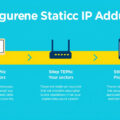In our increasingly interconnected digital landscape, data privacy emerges as a critical concern for individuals and organizations alike. With the proliferation of online activities and the collection of personal information, understanding data privacy principles, its importance, and the relevant laws can empower users to protect their digital lives effectively.
What is Data Privacy?
Data privacy, also known as information privacy, refers to the right of individuals to control how their personal information is collected, stored, and shared. This includes data such as names, addresses, email addresses, biometrics, and any other identifiable information. Essentially, data privacy acknowledges that users deserve autonomy over their personal data, allowing them to decide who has access to it and how it can be utilized.
At its core, data privacy aims to protect individuals from unauthorized access and misuse of their information, helping to foster a sense of trust in online interactions. As technology evolves, so do the challenges surrounding data privacy, leading to the implementation of various regulations designed to uphold user rights.
The Importance of Data Privacy
The significance of data privacy cannot be overstated in today’s digital ecosystem. Here are key reasons why it holds fundamental value:
-
Human Rights: In many jurisdictions, privacy is recognized as a fundamental human right. Protecting personal data safeguards this right, enabling individuals to express themselves freely without fear of surveillance or misuse.
-
Trust and Engagement: For businesses, maintaining data privacy is crucial in fostering customer trust. Users are more likely to engage with companies that prioritize their privacy. A failure in data privacy can lead to reputational damage and loss of customer loyalty.
-
Preventing Misuse: When personal data is inadequately protected, it becomes vulnerable to misuse by criminals. Data breaches can lead to identity theft, financial fraud, and other malicious activities that undermine consumer confidence and safety.
-
Regulatory Compliance: Various laws, such as the General Data Protection Regulation (GDPR) in Europe and the California Consumer Privacy Act (CCPA) in the U.S., mandate that organizations treat personal data with care. Non-compliance can result in hefty fines and legal repercussions.
-
Societal Implications: Privacy ensures that individuals maintain control over their personal information, thereby supporting a free and democratic society. This autonomy allows citizens to operate without unwarranted surveillance, fostering environments where innovation and expression can flourish.
Data Privacy vs. Data Security
While data privacy and data security are often conflated, they address different aspects of information management.
-
Data Privacy focuses on the rights of individuals regarding their personal data, guiding how that data is collected, used, and shared. It ensures that organizations adhere to policies that respect user consent and provide transparency in data handling.
-
Data Security, on the other hand, is concerned with protecting data from unauthorized access and breaches. This involves implementing various technical measures, such as encryption, firewalls, and access controls, to safeguard information from malicious actors.
A robust data governance strategy integrates both privacy and security, ensuring that user data is handled responsibly while being protected against threats.

Key Data Privacy Laws and Regulations
Several significant regulations shape the landscape of data privacy globally:
-
General Data Protection Regulation (GDPR): Enforced in the European Union, GDPR sets stringent guidelines for the collection and processing of personal data. It grants individuals rights such as access to their data and the ability to request its deletion.
-
California Consumer Privacy Act (CCPA): This U.S. regulation gives California residents the right to know what personal data is collected and shared, along with the ability to opt out of data sales.
-
Health Insurance Portability and Accountability Act (HIPAA): In the healthcare sector, HIPAA provides rules for the protection of sensitive patient information.
-
Children’s Online Privacy Protection Act (COPPA): Aimed at protecting children’s online data, COPPA mandates parental consent for data collection from children under 13. These laws enforce best practices in data privacy, urging organizations to adopt transparent data management strategies.
Best Practices for Enhancing Data Privacy
To safeguard your personal data in a digital world, consider implementing the following best practices:
-
Stay Informed: Understand the privacy policies of the services and applications you use and stay updated on any changes.
-
Use Strong Authentication: Implement strong passwords and two-factor authentication to secure your online accounts from unauthorized access.
-
Limit Data Sharing: Be cautious about the information you share online. Opt for minimal data sharing with apps and websites.
-
Review Privacy Settings: Regularly check and customize the privacy settings in your social media accounts and online services to control what data is visible and shared.
-
Be Mindful of Consent: Before using online services or apps, carefully read consent agreements, ensuring you understand how your data will be used.
-
Advocate for Your Rights: Know your legal rights regarding data privacy. Utilize rights granted by laws like GDPR and CCPA to manage and request your personal data.
Conclusion
Understanding and acting upon data privacy principles is essential for protecting your digital life in today’s connected world. By recognizing the importance of data privacy, establishing it as a personal priority, and adhering to best practices, individuals can navigate the complexities of the digital landscape more securely in their online interactions. As regulations continue to evolve, fostering a culture of privacy will not only benefit individual users but society as a whole.



